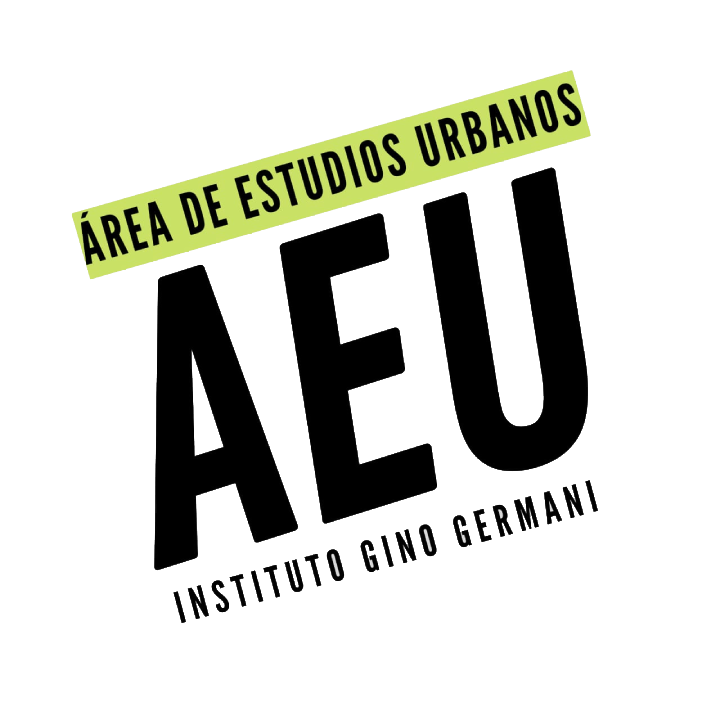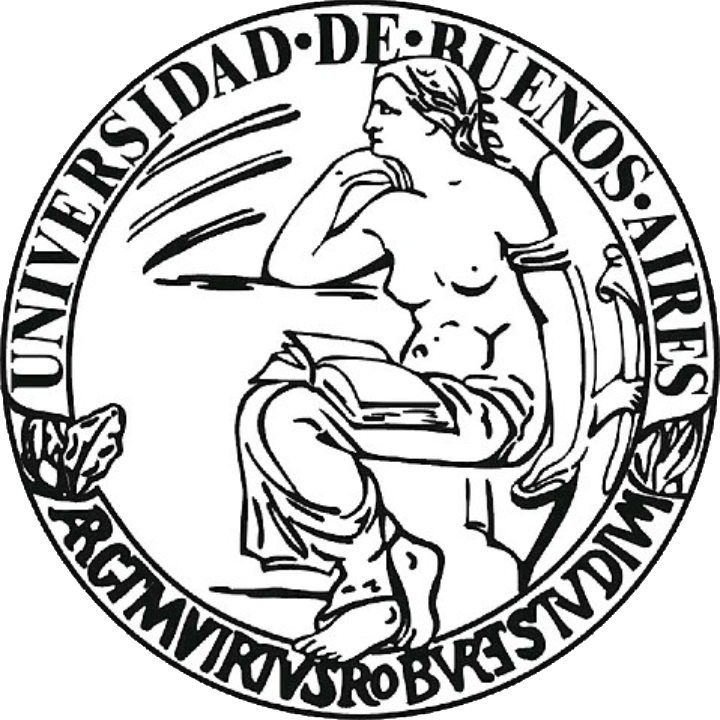Es el valor lo que da existencia a los universos
Resumen
Texto completo:
PDFReferencias
APPADURAI, Arjun (1986) “Introduction: Commodities and the politics of value”. En Arjun Appadurai (ed.) The social life of things: Commodities in cultural perspective. Cambridge: Cambridge University Press, pp. 3–63.
BAKHTIN, Mikhail (1981) The dialogic imagination: Four essays by M. M. Bakhtin. Austin: University of Texas Press.
BLOCH, Maurice (1971) Placing the dead: Tombs, ancestral villages, and kinship organization in Madagascar. London: Seminar Press.
BLOCH, Maurice (2008) “Why religion is nothing special but is central” Philosophical Transactions of the Royal Society B, Vol. 363, pp. 2055–61.
BLOCH, Maurice (2012) Anthropology and the cognitive challenge. Cambridge: Cambridge University Press.
BOURDIEU, Pierre (1976) “Le champ scientifique.” Actes de la recherche en sciences sociales, Vol. 2–3, pp. 88–104.
BOURDIEU, Pierre (1983) “The field of cultural production, or: The economic world reversed” Poetics, Vol. 12, pp. 311–56.
BOURDIEU, Pierre (1985) “The genesis of the concepts of habitus and of field” Sociocriticism, Vol. 2, No. 2, pp. 11–24.
CALLOIS, Roger (2001) Man, play and games. Urbana: University of Illinois Press.
CARRITHERS, Michael, Matei CANDEA, Karen SYKES, Martin HOLBRAAD, Soumhya VENKATSEN (2010) “Ontology is just another word for culture: Motion tabled at the 2008 meeting of the Group for Debates in Anthropological Theory, University of Manchester” Critique of Anthropology, Vol. 30, No 2, pp. 152–200.
CEPEK, Michael (2008) “Bold jaguars and unsuspecting monkeys: The value of fearlessness in Cofán politics” Journal of the Royal Anthropological Institute, N.S., No. 1: 334–52.
DALSGAARD, Steffen (2013) “The commensurability of carbon: Making value and money of climate change” HAU: Journal of Ethnographic Theory, Vol. 3, No 1, pp. 80–98.
DE ANGELIS, Massimo (2007) The beginning of history: Value struggles and global capitalism. London: Pluto Press.
DUMONT, Louis (1970) Homo hierarchicus. Chicago: University of Chicago Press.
DUMONT, Louis (1986) Essays on individualism: Modern ideology in anthropological perspective. Chicago: University of Chicago Press.
EISS, Paul (2002) “Hunting for the virgin: Meat, money and memory in Tetiz, Yucatán.” Cultural Anthropology, Vol. 17, No 3, pp. 291–330.
EISS, Paul; David PEDERSEN (2002) “Introduction: Values of value.” Cultural Anthropology, Vol. 17, No 3, pp. 283–90.
ELSON, Diane (1979) Value: The representation of labour in capitalism. London: CSE Books.
FAJANS, Jane (1993) “Exchanging products: Producing exchange”. En Jane Fajans (ed.) Exchanging Products: Producing exchange, Sydney: Oceania Monographs, University of Sydney, pp. 1–14.
FAJANS, Jane (1997) They make themselves: Work and play among the Baining of Papua New Guinea. Chicago: University of Chicago Press.
GEERTZ, Clifford (1973) “Religion As a Cultural System”. En The interpretation of cultures, New York: Basic Books, pp. 87–125.
GRAEBER, David (1997) “Manners, deference and private property in early modern Europe” Comparative Studies in Society and History, Vol. 39, No 4, pp. 694–728.
GRAEBER, David (2001) Toward an anthropological theory of value: The false coin of our own dreams. New York: Palgrave-Macmillan. [En esp.: Hacia una teoría antropológica del valor. 2018. Buenos Aires: Fondo de Cultura económica]
GRAEBER, David (2005a). “Introduction: The political metaphysics of stupidity” The Commoner, Spring 2005. www.thecommoner.org.uk.
GRAEBER, David (2005b) “Fetishism as social creativity, or fetishes are gods in process of construction” Anthropological Theory, Vol. 5, No. 4, pp. 407–38.
GRAEBER, David (2005c) “Value: Anthropological theories of value”. En James Carrier (ed.) Handbook of economic anthropology, Aldershot, UK: Edward Elgar, pp. 439–454.
GRAEBER, David (2006) “Turning modes of production inside out: Or, why capitalism is a transformation of slavery (short version)” Critique of Anthropology, Vol. 26, No. 1, pp. 61–81.
GRAEBER, David (2007a.) “An army of altruists: On the alienated right to do good.” Harper’s Magazine, January 2007, pp. 31–38.
GRAEBER, David (2007b) Lost people: Magic and the legacy of slavery in Madagascar. Bloomington: Indiana University Press.
GRAEBER, David (2011) “Value, politics, and democracy in the United States” Current Sociology, Vol. 59, No. 2, pp. 186–199.
GRAEBER, David (forthcoming). “Culture as creative refusal.” Cambridge Anthropology.
HARDT, Michael y Antonio NEGRI (2000) Empire. Cambridge: Harvard University Press.
HEGEL, Georg Wilhelm Friedrich (1977) Phenomenology of spirit. Translated by V. Miller Arnold. Oxford: Clarendon Press.
HERDER, Johan Gottfried Von. ([1772] 2002) “Treatise on the origins of language”. En Michael Forster (ed.) Herder: Philosophical writings. Cambridge, Cambridge University Press, pp. 65–166.
HERDER, Johan Gottfried Von ([1774] 2004) “Another philosophy of history for the education of mankind”. En D. Evrigenis Ioannis (ed.) Another philosophy of history and selected political writings. Indianapolis, IN: Hackett Publishing, pp: 3–98.
HOLMBERG, David (2000) “Derision, exorcism, and the ritual production of power” American Ethnologist, Vol. 27, No. 4, pp. 927–49.
HUIZINGA, Johan (1955). Homo ludens: The play element in culture. Boston: Beacon Press.
HUMPHREY, Caroline (2001). Marx went away but Karl stayed behind. Ann Arbor: University of Michigan Press.
LEACH, Edmund Ronald (1954) Political systems of highland Burma: A study of Kachin social structure. Cambridge, MA: Harvard University Press.
LEACH, Edmund Ronald (1982) Social anthropology. Oxford: Oxford University Press.
MARX, Karl ([1858] 1964) Pre-capitalist economic formations, translated by Jack Cohen. New York: International Publishers.
MARX, Karl ([1867] 1977). Capital: Volume I, translated by Fowkes Ben. London: Penguin Books.
MINK, Louis (1978) “Narrative form as a cognitive instrument”. En Robert Canary y Henry Kozicki (ed.) The writing of history: Literary form and historical understanding. Madison: University of Wisconsin Press, pp. 129–49.
MUNN, Nancy (1977). “The spatiotemporal transformations of gawan canoes” Journal de la Société des Océanistes. Tomo 33 (mars-juin), No. 54–55, pp. 39–53.
MUNN, Nancy (1983) “Gawan kula: Spatiotemporal control and the symbolism of influence”. En Jerry W. Leach y Edmund Leach (eds.) The kula: New perspectives on Massim exchange, Cambridge: Cambridge University Press, pp. 277–308.
MUNN, Nancy (1986). The fame of Gawa: A symbolic study of value transformation in a Massim (Papua New Guinea) society. Cambridge: Cambridge University Press.
MYERS, Fred (1986) Pintupi country, Pintupi self: Sentiment, place, and politics among Western Desert Aborigines. Washington: Smithsonian Institution Press.
MYERS, Fred (1993) “Place, identity, and exchange in a totemic system: Nurturance and the process of social reproduction in Pintupi society”. En Jane Fajans (ed.) Exchanging products: Producing exchange. Sydney: Oceania Monographs, University of Sydney, pp. 33–58.
MYERS, Fred (2001). The empire of things: Regimes of value and material culture. Santa Fe, NM: School of American Research.
ORTIZ, Horacio (2013) “Financial value: Economic, moral, political, global” HAU: Journal of Ethnographic Theory, Vol. 3, No. 1, pp. 64–79.
PEDERSEN, David (2008) “Introduction: Toward a value theory of anthropology” Anthropological Theory, Vol. 8, No, 1, pp. 5–8.
PROPP, Vladimir (1968). Morphology of the folktale. Baltimore, MD: Port City Press.
RICOEUR, Paul (1984) Time and narrative. Translated by Kathleen McLaughlin and David Pellauer. Chicago: University of Chicago Press.
ROBBINS, Joel (1994) “Equality as a value: Ideology in Dumont, Melanesia, and the West” Social Analysis, Vol. 36, pp. 21–70.
ROBBINS, Joel (2013) “Monism, pluralism, and the structure of value relations: A Dumontian contribution to the contemporary study of value” HAU: Journal of Ethnographic Theory, Vol. 3, No. 1, pp. 99–115.
SANGREN, Steven (1987a) “Orthodoxy, heterodoxy, and the structure of value in Chinese rituals” Modern China, Vol. 13, No. 1, pp. 63–89.
SANGREN, Steven (1987b). History and magical power in a Chinese community. Stanford, CA: Stanford University Press.
SANGREN, Steven (2000) Chinese sociologics: An anthropological approach to the study of alienation in social reproduction. London: Athlone Press.
SMITH, Raymond T (1995) The matrifocal family: Power, pluralism, and politics. London: Routledge.
STRAUSS, Claudia (2006) “The imaginary” Anthropological Theory, Vol. 6, No. 3, pp: 322–44.
STRATHERN, Marilyn (1988) The gender of the gift: Problems with women and problems with society in Melanesia. Berkeley: University of California Press.
TURNER, Terence (1979a) “Anthropology and the politics of Indigenous peoples’ struggles” Cambridge Anthropology Vol. 5, pp. 1–43.
TURNER, Terence (1979b) “The Gê and Bororo societies as dialectical systems: A general model”. En David Maybury-Lewis (ed.) Dialectical societies: The Gê and Bororo of central Brazil. Cambridge, MA: Harvard University Press, pp. 147–78.
TURNER, Terence (1984a). “Value, production and exploitation in simple non-capitalist societies.” Unpublished manuscript.
TURNER, Terence (1984b). “Dual opposition, hierarchy and value: Moiety structure and symbolic polarity in central Brazil and elsewhere”. En Jean-Claude Galey (ed.) Differences, valeurs, hierarchies: Textes offertes à Louis Dumont et reunis par Jean-Claude Galey, Paris: Editions de l’Ecole des Hautes Etudes en Sciences Sociales, pp. 335–370.
TURNER, Terence (1987). The Kayapo of Southeastern Para. Unpublished monograph prepared for CEDI, Povos Indigenas do Brasil, Vol. VIII, Sul do Para, Part II.
TURNER, Terence (1988). “A critique of ‘interpretation,’ with special reference to Geertz’s conception of culture as text.” Unpublished manuscript, University of Chicago.
TURNER, Terence (1995) “Social body and embodied subject: The production of bodies, actors and society among the Kayapo” Cultural Anthropology, Vol. 10, No. 2, pp. 143–70.
TURNER, Terence (1997) “The poetics of play: Ritual clowning, masking and performative mimesis among the Kayapo”. En Klaus Kopping (ed.) The games of gods and men, Hamburg: LIT, pp. 173–90.
TURNER, Terence (2000) “The sacred as alienated social consciousness: Ritual and cosmology among the Kayapo”. En L. Sullivan (ed.) Native religions and cultures of Central and South America, New York: Continuum, pp. 278–98.
TURNER, Terence (2003a) “The beautiful and the common: Gender and social hierarchy among the Kayapo” Tipiti: The Journal of the Society for the Anthropology of Lowland South America, Vol. 1; No. 1, pp. 11–26.
TURNER, Terence (2003b) “Class projects, social consciousness, and the contradictions of ‘globalization’” en Jonathan Friedman (ed.) Violence, the state and globalization. New York, Altamira, pp. 35–66.
TURNER, Terence (2006) “Kayapo values: An application of Marxian value theory to a non-commodity based system of production.” Unpublished manuscript.
TURNER, Terence (2008) “Marxian value theory: An anthropological perspective” Anthropological Theory, Vol. 8, No 1, pp. 43–56.
TURNER, Terence y Jane FAJANS (1988) “Where the action is: An anthropological perspective on ‘activity theory,’ with ethnographic implications.” Unpublished manuscript, University of Chicago.
VANDENBURGHE, Frédéric (1999) “‘The real is relational’: An epistemological analysis of Bourdieu’s generative structuralism” Sociological Theory, Vol. 17, No. 1, pp. 32–67.
WEBER, Max (1978) Economy and society: An outline of interpretive sociology. 2 volumes. Berkeley: University of California Press.
WEINER, Annette (1985) “Inalienable Wealth” American Ethnologist, Vol. 12, No. 2, pp. 210–25.
WEINER, Annette (1992) Inalienable possessions: The paradox of keeping-while-giving. Berkeley: University of California Press.
WHITE, Hylton (2010) “Outside the dwelling of culture: Estrangement and difference in postcolonial Zululand” Anthropological Quarterly, Vol. 83, No. 3, pp. 497–518.
WHITE, Hylton (2011) “Beastly whiteness: Animal kinds and the social imagination in South Africa” Anthropology Southern Africa, Vol. 34, No. 3 & 4, pp. 104–13.
WILLERSLEV, Rane (2013) “God on trial: Human sacrifice, trickery, and faith” HAU: Journal of Ethnographic Theory, Vol. 3, No. 1, pp. 140–54.
WOLK, Daniel (n.d.) “The making of social class and status among assyrian immigrants in Chicago.” Unpublished manuscript.
ZIMBARDO, Philip G (2008). The Lucifer effect: How good people turn evil. New York: Random House.
Enlaces refback
- No hay ningún enlace refback.
Estadísticas
Visitas al Resumen:380
PDF:389
Quid16. Revista del Área de Estudios Urbanos. ISSN: 2250-4060.
Los trabajos publicados en esta revista están bajo licencia Creative Commons Attribution 4.0 International.







